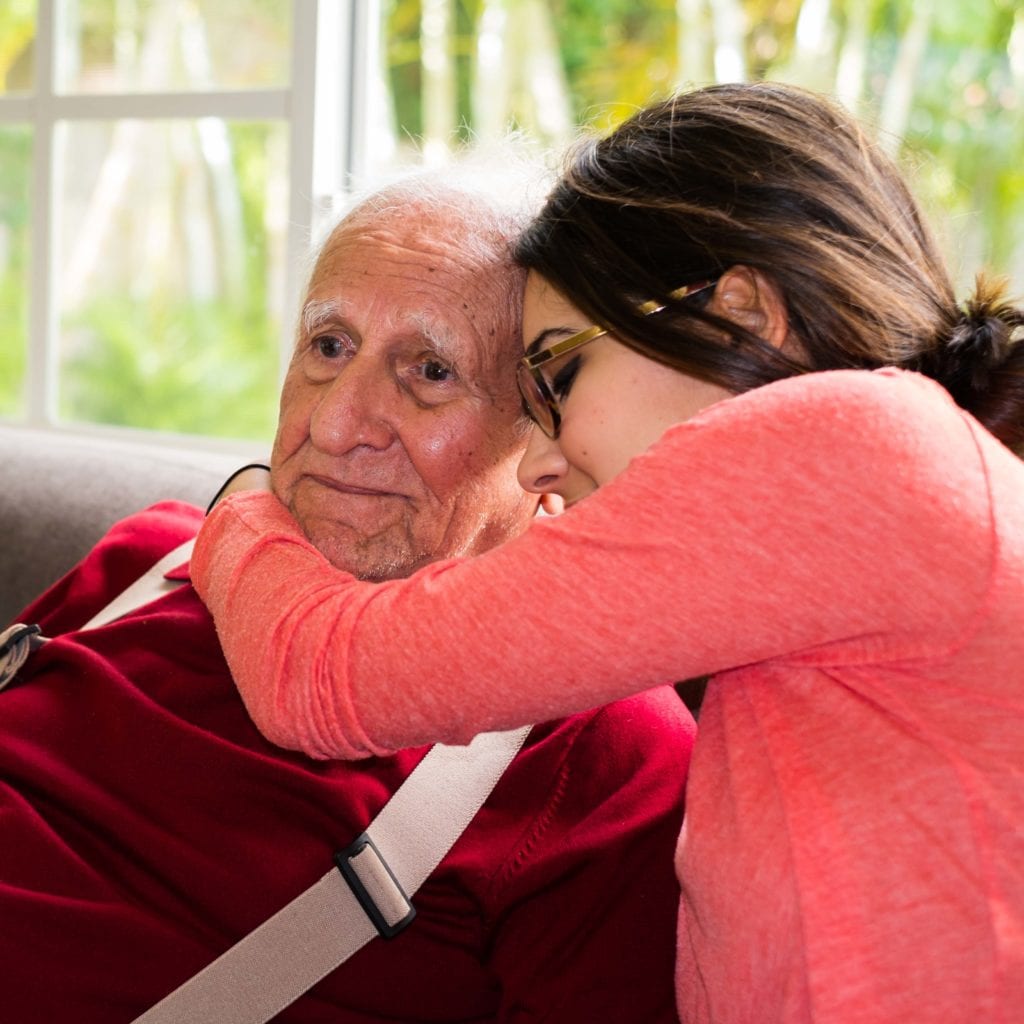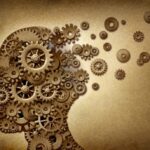It’s a difficult, but important, question… “What are the signs of end stage dementia?”
It’s a difficult one to ask and think about. Because, understandably, we don’t want to know. However, understanding the signs to look for is important. Knowing these signs will help the person and caregivers come up with the best care and treatment plan.
What Is End Stage Dementia?
There is no exact definition of end stage dementia. How it looks and how long it lasts is different for each person with dementia.
That said, there are a number of common signs to look for that show the later stages of dementia has arrived. At a high level, you’ll see many symptoms of dementia the person has had will worsen. They will be unable to take care of themselves. Others will have to do most things for them.
And toward the very end, there will be more and more signs that the body is starting to shut down.
Below we’ll take a look at some specific things to look out for. If you notice them in your loved one, know there are things you can do to help with their quality of life.
And know that you are not alone. There are a number of helpful resources and heroes around to provide care and comfort in this difficult time.
What Are the Signs of End Stage Dementia?
Significant memory loss
Memory loss is one of the most common aspects of dementia. In the late stage of dementia, it gets much worse. The toughest is arguably when the person doesn’t recognize their own family members and loved ones.
Memory loss may be so bad for some that they may think there are strangers in the house.
Short term memory pretty much doesn’t exist at this point. In the end stages, people probably won’t remember what they ate a few minutes ago or who visited them.
It’s also not unusual for people to believe they’re living in the past. They’ll refer to people and/or events that took place decades earlier.
Speech and Communication
Look for speech and communication to become very limited. In the final few months, a person may not say more than a few words a day.
Decrease in Mobility
In the later stages of dementia, the person may not move much. This can be due to other medical conditions, vision issues, medication and/or dementia itself.
They may still enjoy past activities and hobbies, however. Even with restricted movement, it can be helpful to give them the feelings associated with these things.
Playing their favorite music. Looking at family photos. Eating their favorite foods.
They may respond more to things that stimulate their senses.
Weight Loss
Weight loss is common in the end stages of dementia. This may be related to difficulties with swallowing or chewing. Or it could be due to other health issues and/or medications.
A caregiver may need to help people eat and drink. The consistency of their food may also need to be changed. Having it in a liquid or puree can help make eating easier.
Incontinence
Using the toilet may become extremely difficult in the later stages of dementia. If this becomes a problem, using incontinence pads may be helpful.
Behavioral Changes
It’s common for people to be become more scared and confused. This can lead to behavior changes.
Showing distress and even aggression towards others is common. One common issue to look for is “Sundowning” here. This is where their agitation gets worse in the late afternoon or early evening.
A distraction at this time may be helpful in reducing Sundowning. Making sure lighting is appropriate (not too bright or dark) can help too.
Hallucinations may also be an issue for some in the later stages. Repetition of speech or behaviors becomes more common. People in the end stages may also fidget more and more.
Other Health Problems
Other illnesses may present themselves in the end stages of dementia. This could be things like stroke, cancer, congestive heart failure, COPD, UTIs and more.
We hope that gives you a clear answer to the question “What are the signs of end stage dementia?” If something is still not clear or you have other questions, please post them in the comment section below. We will do are best to get you an answer.
Ways to Minimize Discomfort
There are things you can do for your loved one at this time. Spend time with them. Talk to them. Hold their hand. Play music. Show them pictures.
There are also medications that can help with the signs we shared above.
But we’re not going to get into the specifics here. We think it’s enough to know that there are things that can help.
What, specifically, will work for your loved one depends on your loved one. Their specific symptoms. Their illnesses. Where they’re staying. Who’s taking care of them. And more.
No website can give you a good plan for that. All we can do is suggest you reach out to others to help come up with the best plan for your loved one.
Doctors. Nurses. Physical Therapists. Dietitians. Other caregivers. The Alzheimer’s Association. Palliative care providers. Other employees at the memory care facility.
And, when the final stage is near, reach out to hospice. Hospice is an incredible resource for both the patient and family members.
The late stages are an extremely difficult time for all involved. Just remember you are not alone. There are resources available to help you and your loved one through it.
More on the Stages of Dementia
This article is part of a series we’ve written about the signs of dementia.
The next article in the series answers the question “Is Anger a Sign of Dementia?”





